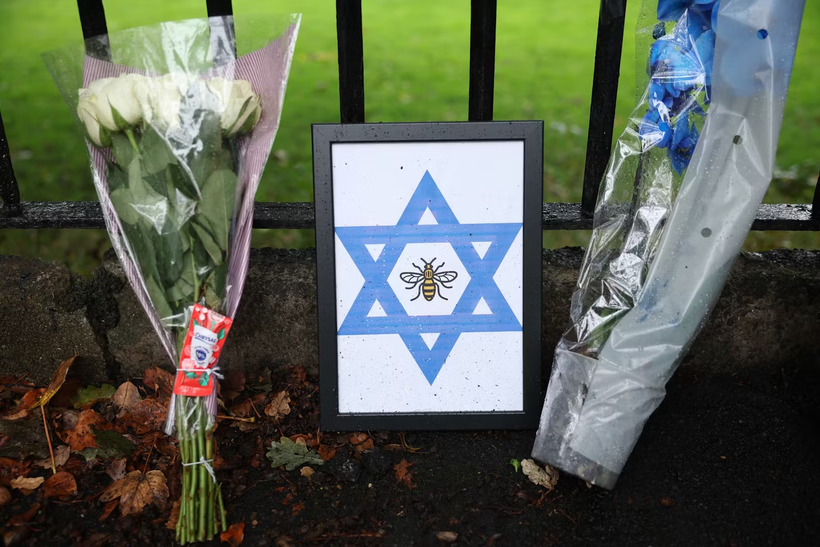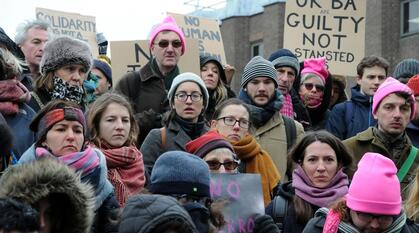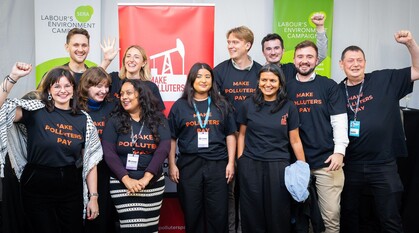Quakers and antisemitism
Tony Stoller reflects on the need to improve understanding between the Jewish and Quaker communities in Britain, from his experience as a member of both.

It isn't easy being a Jewish Quaker in Britain at the moment. That wasn't always the case, and it isn't a matter of divided loyalties.
When my late wife Andy and I – both of us Jewish – were welcomed into membership of the Religious Society of Friends in the early 1980s, it seemed a perfectly normal thing to do. The historic closeness between the two religions in this country made co-membership feel entirely natural. There were quite a few Jewish Quakers like us, and in time we came together in a group of 'Friends with Jewish Connections'.
Historic closeness
Historically, Margaret Fell had been one of the prime movers in persuading Oliver Cromwell to readmit Jews to England from 1656 onwards, after they had been expelled in the late Middle Ages in 1290. In the last century, Quaker work in Nazi Germany and then with Jewish refugees in the UK formed a close and lasting bond. For decades after the founding of the state of Israel by the United Nations in 1948, Quaker peace workers held the middle ground between Arabs and Israelis and were valued and respected by both sides. Until recently, synagogues often used Friends Meeting Houses as overflows for 'High Holy Day' services such as the celebration of the Jewish New Year, Rosh Hashnah. We felt warmly at home in each other's company.
Current estrangement and the rise of antisemitism
It's not like that now.
The proximate cause isn't hard to find. In championing the misery of the Palestinian people, too many Quakers fail to distinguish between the actions of the Israeli government and military forces, and the feelings and humanity of British Jews. In their intense and understandable fear of renewed pogroms, too many Jews in Britain regard the frequent challenges by Quakers to Israeli actions as tantamount to antisemitism. With the unquestioned rise in attacks of Jews in this country, brought hideously into focus by the murders in Manchester this month, some see the spectre of antisemitism in legitimate humanitarian and political concern about the Middle East.
And sometimes that is precisely what it is. Some people hide their antisemitism behind the cloak of legitimate criticism of Israel. Just like all other oppressions, antisemitism can be unconscious. Deep-seated prejudice within the British Labour Party, so long the natural home for British Jews, has now at last been acknowledged and tackled. Yet the frequent pro-Palestinian marches, even on the anniversary of Hamas mass-murders on 7 October 2023, appear for some of those 'protesting' to mask dislike or fear of Jews. They serve also to terrify many in British Jewish communities.
Quakers and antisemitism
I had always been confident that Quakers felt called to tackle prejudice in all its forms, including antisemitism. That for me was a major reason for wanting to join Friends. Yet I cannot now avoid the conclusion that there is a real problem of unrecognised or unchallenged antisemitism among some Quakers and some of the groups with which Quakers connect in our peace witness. At a time when antisemitism is on the rise in many countries, perpetuating anti-Jewish oppression or allowing it to continue unchallenged plays into this dangerous trend and risks emboldening those who threaten Jewish communities.
Many non-Jews don't know much about Jews or antisemitism. When we don't know much about an oppression, it's easy for us to miss it or, worse, accidentally perpetuate it. Quakers individually and collectively need to recognise antisemitism and the frequent tropes in which it finds expression – including the myths of Jewish power and Jewish wealth, the 'blood libel', cartoon caricatures of Jews, even the denial of the existence of antisemitism – and challenge it when it appears.
We need also to challenge our own unconscious prejudices: saying “Jew" when we mean “Israeli", (as a senior national newspaper journalist said to me recently in an unguarded moment); accepting the idea that Judaism is a backward old-fashioned religion superseded by Christianity; assuming that all British Jews are white, educated and middle-class; the mistaken assumption that all Jews are of European descent. After all, perhaps half of present-day Israelis are descended from Jewish communities expelled from North Africa, rather than the European diaspora resulting from the Holocaust.
British Jews have long regarded Quakers as friends in both senses. I hope that we all, Quakers and Jews, feel called upon to regain that relationship. Staff at Quakers in Britain are preparing a guide for Quakers on recognising and challenging antisemitism, due out later this year.
As we hope against hope that the peace settlement in Gaza may hold, perhaps this could be the moment of the turning of the tide. I warmly appreciate the new work being undertaken by Quakers in Britain staff. My own local meeting has made good progress in rebuilding relationships with our local Jewish community. I urge all local meetings to take on this concern, as a positive contribution to interfaith relations in Britain and as a symbol of what we hope for in the Middle East.


